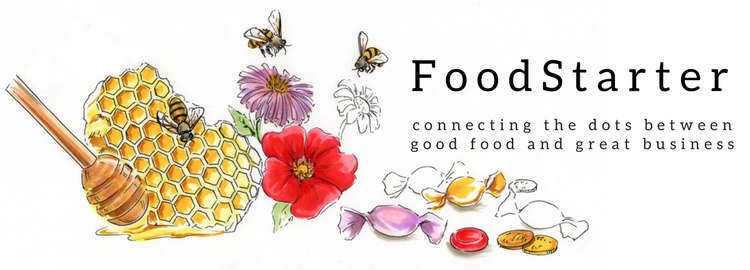I’m fortunate to be acquainted with the impressive Bibby Gignilliat,* who parlayed a career in marketing to an entrepreneurial career that, even before America went gaga over food, turned cooking into lively team-building events. Today Bibby is living the dream of owning a successful, growing business. And it’s not due to luck.
She embarked on her food-related path with cooking school, followed by stints at several highly regarded food establishments, and teaching cooking at popular schools in the San Francisco Bay Area.
Based on this strong foundation of cooking knowledge, she started Parties That Cook®—today the premier cooking party and culinary team-building company in the San Francisco Bay Area, Chicago and LA.
Learn about the special ingredients Bibby combined with smart planning, execution, and fearlessly going for it.
7 Secrets for Service Success
1. Find the special sauce
In the case of Parties That Cook the secret sauce did not resemble Russian salad dressing.
Early on it was clear that competitive cooking parties made an ideal offering for corporate team-building events, now the bread and butter of Parties That Cook. “Unlike some of the more extreme activities, most people are willing to give cooking a try. What’s more, the kitchen can represent a microcosm of the working world, with a deadline, limited resources to work with and a requirement for cooperation.”
Lesson Learned: Fill a need among a target audience that has the motivation and means to flock to your business.
2. Risk the dough
It is said it takes money to make money. This is especially true when launching a business the right way. One look at the beautiful Parties That Cook website shows the care that went into creating a delightful customer experience, from beginning to end.
Lesson Learned: From the marketing, to the staff hired, to the ingredients used in the cooking classes, you can see the investment made has paid off in building a brand and services that cannot be found anywhere else.

3. Start small, think big
Parties That Cook began as a home-based business with temporary personnel. As the business grew, the company moved into office space with full time employees and dedicated warehouse space.
Lesson Learned: When you start a business it’s all about prioritizing: You can fairly easily create an “expensive looking” brand image while in reality operating on a shoestring in the background. Just make sure you’re ready to grow operationally (you know, when Oprah or the Daily Candy mention you) and you deliver on your promises. That’s what creates customer experiences that result in the oh so coveted word-of-mouth marketing.
An additional lesson from Parties That Cook’s growth is choosing strategically important clients and opportunities. Know when to say “no” to avoid getting bogged down. (It’s the 80 / 20 rule in effect: 20% of the business generating 80% of the revenue.)
4. Build a great team
 Bibby beat the odds of starting a successful business as a solo operator; solo-run small businesses tend to fail more than those with several partners. The key? Choosing employees and contract staff whose passion, expertise, and desire to create a successful business equaled or exceeded her own.
Bibby beat the odds of starting a successful business as a solo operator; solo-run small businesses tend to fail more than those with several partners. The key? Choosing employees and contract staff whose passion, expertise, and desire to create a successful business equaled or exceeded her own.
Lesson Learned: Staff up. Have additional staff ready. Attract the best by being the best. Compensate your staff well whether monetarily, through recognition, and / or by providing growth opportunities.
5. Diversify your offering
The company’s website points out that “food is the universal language and nothing brings people together better than cooking!” Parties That Cook offers various types of events based on a variety objectives such as lively competitions—“Iron Chef” style–or convivial non-competitive cooking events.
As such they can serve the needs of several types of customers:
- Companies (for team building parties)
- Consumers (for singles parties and wedding showers)
- Community groups (such as for political fundraisers)
Lessons Learned: For service businesses, offering either a menu of service levels or different twists on the same service broadens your possible customer base in several ways:
- You can market to a broader audience.
- For each customer, you may be able to fulfill their needs at different times. (Similarly a portrait wedding photographer may get repeat business from a particular customer by taking wedding portraits, then full family portraits, pet portraits etc.)
A similar concept applies for product-based businesses.

6. Diversify even more
In addition to the Parties That Cook events, Bibby took the initiative to create a beautifully packaged deck of 30 recipe cards. This product serves as a great companion to the cooking parties as well as a nice gift for any occasion.
Much like selling bottled barbeque sauce at a restaurant, the The Sumptuous Small Plates Deck: 30 Recipes for Deliciously Fun Entertaining lets you remember your experience at the Parties That Cook event—and even throw your own party.
Lessons Learned: Adding one or more products to complement services provided gives you another income stream as well as keeping your company top of mind with customers and prospects.
7. Have FUN
The smiles in the photos are real. Of course cooking and parties go hand in hand with fun. The business is hard work. But in addition to fun delivered for customers, the Parties That Cook team remembers to join in and celebrate.
Lessons Learned: Life is short. It’s just work. Enjoy yourself!
I originally wrote this article in 2008; in 2014, Parties That Cook took over a beloved San Francisco cooking school, writing the next chapter in this wonderful woman-owned business.






